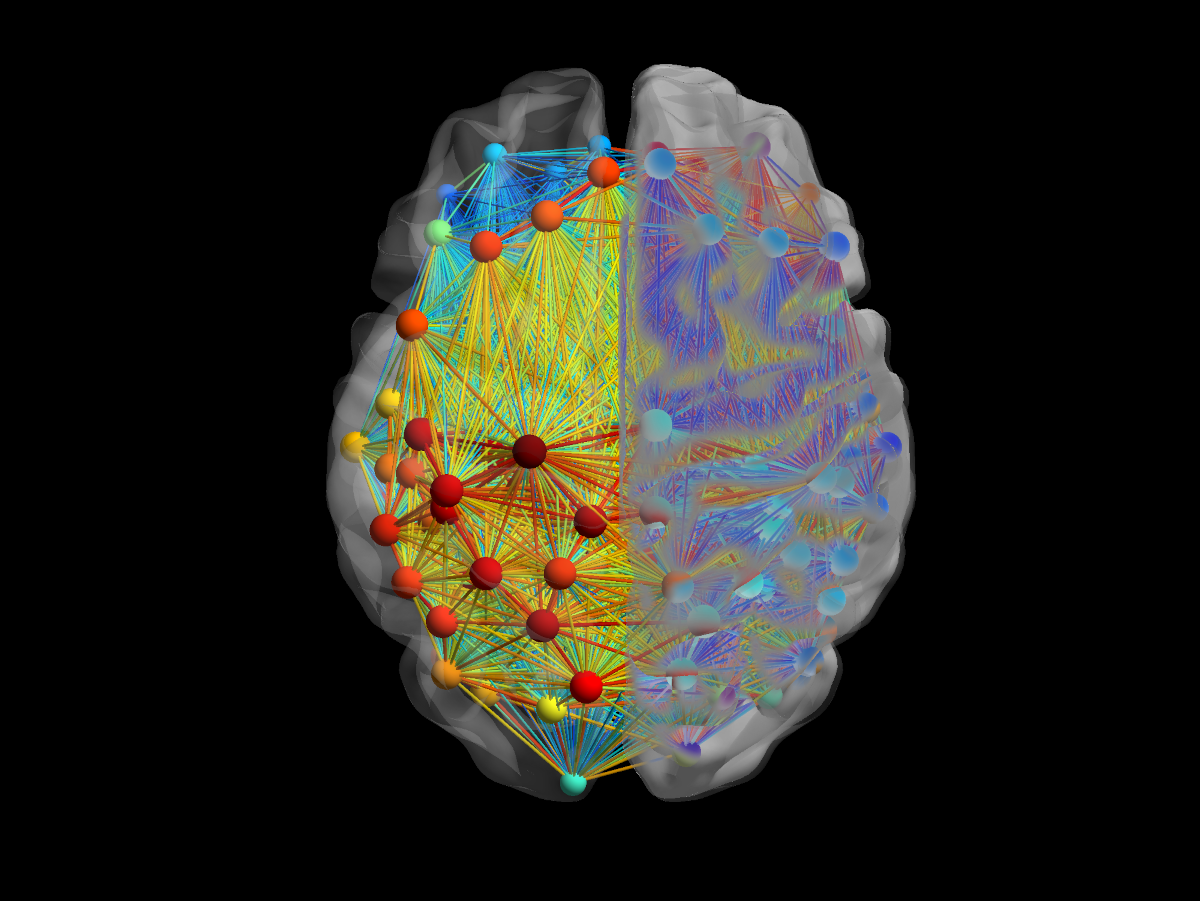“The ideal man bears the accidents of life with dignity and grace, making the best of circumstances.”
“I do not understand the mystery of grace – only that it meets us where we are but does not leave us where it found us.”
Over a career spanning six decades, I have had the good fortune of working with hundreds of organizations. My favorite among all of them has been the Grand Traverse Regional Land Conservancy (GTRLC). They not only have a compelling vision (environmental protection) but also an unrelenting commitment to the values that anchor their decisions and guide their behaviors. To top it all off, they have a highly committed and capable staff who work together to achieve bold goals for the common good.
Developing this kind of culture doesn’t happen by accident.
It requires leadership modelling behavior and a reward system that reinforces staff who exemplify the desired values and norms. At GTRLC, Glen Chown has served as the executive director for 33 years. He not only embodies the stated values but also hires people who are aligned with those values. His leadership has played a significant role in creating the high performing culture established over many years.
In the last several months, the Conservancy has been reflecting not only on its values (Excellence, Leadership, Inclusiveness, Generosity, Teamwork, Respect, Communications, Integrity, and Proactivity) but also clarifying the desired outcomes of living those values and realizing their vision. After months of candid conversation, the board and staff landed on Hope, Innovation, and Trust as the ultimate outcomes of implementing their strategy and inculcating their shared values: Hope inspired by the conviction that it is possible to make a difference; innovation achieved by courageously pursuing bold ideas and possibilities; and trust earned by credibility, reliability, empathy, and pursuit of the common good. What struck me throughout this process was the attention paid to making sure that they practiced grace in all the interactions required to achieve these outcomes. The actual norm they embedded as a measure of their ability to build trust was: We treat each other with respect, value the practice of grace, and create safe spaces for resolving disagreements.

If only grace was more prevalent in our society at large. If only the people who are voting for the former president in this election would recognize that his leadership never approached any reasonable standard of grace in his last term and will surely be worse if he is elected again. Leadership matters.
Paradoxically, observing the poisonous polarization in this election, it came to me that the divides we are experiencing can be captured by the acronym GRACE:
Gender
Race
Age
Class
Education
We are divided by gender differences, racial differences, age differences, class differences, and educational differences. For example, polling since 2016 shows that the gap between uneducated men and college-educated women has ranged from 41% to 43% between Republican voters and Democratic voters. Unless you have been living in a cave for the last 8 years, I don’t need to tell you which demographic supports which party.
It seems to me that one of our greatest, and most existential, challenges in the years ahead will be to find the grace required to reduce the animosity between these different demographic groups. Aristotle describes the ideal man (person) as one who deals with whatever circumstances he or she faces with dignity and grace. Anne Lamott prompts us to explore the mystery of what happens when we practice grace wherever we are and reminds us to appreciate how the practice of grace does not leave us in the same state in which it found us.
Grace is defined as honoring someone’s presence or bestowing free—and sometimes unmerited—favor to another person. I like those definitions AND see grace as the practice of acceptance, forgiveness and gratitude. What I have found in a long and lucky (for me) marriage is that those three practices make all the difference between a happy relationship and an unhappy one. If both parties can accept the fact each person has different interests, needs, desires, and beliefs, then whatever gaps that may exist can be more easily navigated. If both parties can forgive each other for not necessarily meeting all their particular needs, then neurotic notions or unrealistic expectations can be more gracefully managed. If both parties can remember to be grateful for what the other party brings to the relationship, then it’s more likely to be thankful for what’s present instead of being resentful for what might be missing.
What this election has done, among other things, is to make us more aware of the differences that do exist between us based on gender, race, age, class, and level of educational achievement. It’s going to take a lot grace from all the people on both sides of each divide to move forward in harmony. Without grace, I’m afraid we will find ourselves in a country disgraced by unrestrained hostility and lack of understanding about the reasons behind our differences. In that case, the “dis” in disgraced stands for divided, isolated, and solipsistic—hopelessly divided among ourselves, terrifyingly isolated in the world, and resolutely solipsistic in our worldview—meaning that our beliefs are the only ones of any importance, and our self-centered views encompass all that can be known to exist.
Science and history won’t matter, and we will be more likely to devolve than evolve.

To that last point, my original idea in writing this post was to title it evolution or devolution, but I decided that grace or disgrace somehow served the moment more appropriately. The two ideas, however, address the same issues.
In a recent article in the NYT, my favorite columnist, Thomas Friedman (I’m sharing all my favorites in this post), wrote about how AI could be the next factor to impact how we evolve as a human race, or not. He makes the point: “Polymathic artificial intelligence is not just smarter than humans in a single domain. It will have simultaneously mastered physics, chemistry, biology, materials science, mathematics, medicine, astronomy, Shakespeare, art history and a host of other fields better than any human ever could and be able to see patterns cutting across all of them in ways no human ever could—so it can both ask questions and provide answers that no human ever could.” Wow! Talk about rapid evolution. Friedman concludes that this AI moment is a fundamental turning point for our species. It could either accelerate to a point at which it ends our evolution or it could significantly advance our own evolution. At this point, it is still up to us. At some point, we may no longer have that choice.
Yuval Harari’s new book, Nexus, expands on that idea. In 2022, a software engineer at Google was fired for claiming a chatbot he had been working on had achieved sentience. Just one year later, hundreds of technology leaders called on AI labs to pause their research because of the profound risks to humanity. Now we have become accustomed to hearing apocalyptic warnings.
In 2011, Harari published Sapiens—a profound history of the evolution of our species. It sold over 25 million copies. The success of that book led him into the world of A.I. experts. In Nexus, he reports on the evolution of that world.
In short, Harari concludes that the difference between democracies and dictatorships lies in how they handle information.
In this post, I am trying to summarize in two pages a topic that Harari required over 1,000 pages to elucidate. I’m not in any way proposing that my short summary gives justice to the questions, but I can at least tempt you to pursue the issue further.
Essentially, Harari suggests that systems, whether human or artificial, can evolve and self-correct when they promote conversation and mutuality and that they devolve when they give into blind subservience.
The trends in human systems and AI systems appear to be not only existential but insidious. They result in the polarization of discourse and, in the case of AI, in the monopolization of our attention by feeding us extreme and hateful information. If we end up outsourcing our human judgments, we could lose our sense of grace as well as our control of legal, financial, or military decision-making.

In a recent interview discussing his books, Harari talks about the possibility of evolving “consciousness” of both humans and AI. The hard problem in science has always been to solve the philosophical question of how to explain why and how physical processes in the brain give rise to subjective experience.
It’s a challenge to explain why some physical state is conscious rather than non-conscious and what it means to be in a conscious state.
Now, we are faced with the dilemma that AI consciousness may be evolving more rapidly than human consciousness. The question is, will humans evolve quickly enough to control AI or will AI evolve so rapidly that it controls humans? Oy.
To me, this choice comes down to our sense of perspective and our openness to possibility. Is our perspective based on historical truth and scientific evidence or on the latest AI-generated conspiracy theory? And is our sense of possibility bounded by rigid ideologies or does it free us to explore new opportunities for growth and development? Will we be able to grow our consciousness and grace fast enough to reach new heights together or will we devolve to a state of disgrace in which data dictators, or human ones for that matter, take us to new depths of despair?
In my morning meditation, I try to gain perspective by giving thanks for the mysterious light that gave birth to our universe 14 billion years ago. I give thanks for this magnificent planet somehow finding its place in space orbiting around the sun 4 billion years ago. I give thanks for the first organisms that evolved to become the first human Sapiens about 300,000 years ago. I also give thanks to the amazing possibilities we have as a species who can think, relate, and plan at higher and higher levels as our evolution merges with technological evolution. Those moments of gratitude give me perspective to face whatever challenge each day brings in my brief life here on earth. Those possibilities for growth give me hope that we can still find enough grace to continue to evolve to become a more loving and compassionate species.
With those depressing questions and grateful expressions, let me acknowledge that I understand it is easier to be a graceful winner than a graceful loser. It would be hard for me to find the grace I would need to accept, forgive, and be grateful for whatever a Harris loss would bring.
As always, let me end with my hopes for moving forward: I’m hoping when Harris wins we can embrace an attitude of grace that will reduce the divides caused by this race; I’m also hoping that we can continue to evolve to a place grounded in scientific and historical perspective and elevated by boundless possibilities; Finally, coming full circle, I’m hoping that GTRLC becomes the model for more organizations because they are demonstrating that a shared vision and shared values can result in more hope, innovation, and trust. May it be so.
P.S. Since my older daughter was a religious studies major and is now pursuing a Masters of Divinity, I asked her to review this post before I published it. Here is what she said: “Grace is such a profound concept and worthy of uplifting, especially now. It’s one of those words that often lives in religious spaces—like lament, atonement, redemption, and resurrection all of which resonate with the human experience in ways I think we deeply need but often reject because they are so closely associated with controlling and oppressive religious institutions. But sometimes those are the only words that make sense to use because they have such weight and inherent significance. It’s not the words’ fault that humans use them to harm.” Amen.
Also published on Medium.



Amen indeed! Thank you Ricky
It’s becoming clear that with all the brain and consciousness theories out there, the proof will be in the pudding. By this I mean, can any particular theory be used to create a human adult level conscious machine. My bet is on the late Gerald Edelman’s Extended Theory of Neuronal Group Selection. The lead group in robotics based on this theory is the Neurorobotics Lab at UC at Irvine. Dr. Edelman distinguished between primary consciousness, which came first in evolution, and that humans share with other conscious animals, and higher order consciousness, which came to only humans with the acquisition of language. A machine with only primary consciousness will probably have to come first.
What I find special about the TNGS is the Darwin series of automata created at the Neurosciences Institute by Dr. Edelman and his colleagues in the 1990’s and 2000’s. These machines perform in the real world, not in a restricted simulated world, and display convincing physical behavior indicative of higher psychological functions necessary for consciousness, such as perceptual categorization, memory, and learning. They are based on realistic models of the parts of the biological brain that the theory claims subserve these functions. The extended TNGS allows for the emergence of consciousness based only on further evolutionary development of the brain areas responsible for these functions, in a parsimonious way. No other research I’ve encountered is anywhere near as convincing.
I post because on almost every video and article about the brain and consciousness that I encounter, the attitude seems to be that we still know next to nothing about how the brain and consciousness work; that there’s lots of data but no unifying theory. I believe the extended TNGS is that theory. My motivation is to keep that theory in front of the public. And obviously, I consider it the route to a truly conscious machine, primary and higher-order.
My advice to people who want to create a conscious machine is to seriously ground themselves in the extended TNGS and the Darwin automata first, and proceed from there, by applying to Jeff Krichmar’s lab at UC Irvine, possibly. Dr. Edelman’s roadmap to a conscious machine is at https://arxiv.org/abs/2105.10461